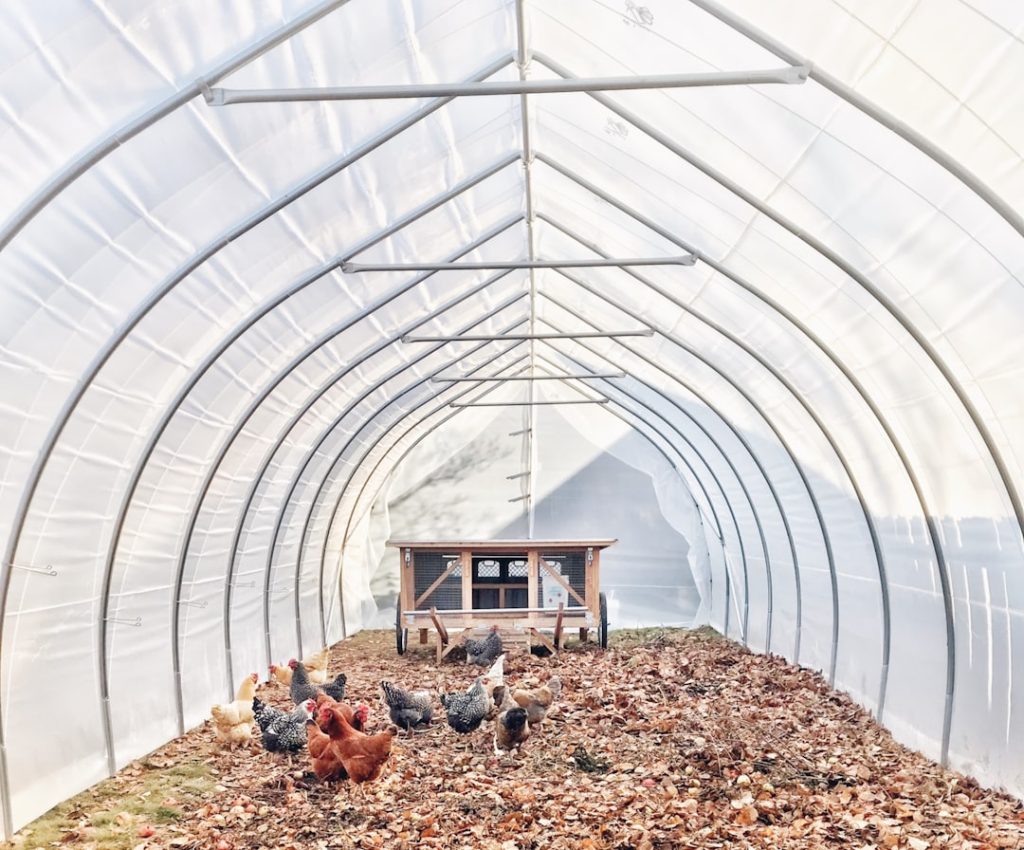When initiating a chicken-keeping endeavor, several factors must be considered. Space availability and local regulations are crucial initial considerations. Chickens require both a coop for shelter and a run for exercise, necessitating adequate space for these structures.
Daily care, including feeding, watering, and cleaning, as well as regular health checks, demands a significant time commitment. The intended purpose of raising chickens—whether for eggs, meat, or as pets—should guide the selection of appropriate breeds. This decision impacts the overall care requirements and expected outcomes of the endeavor.
Chicken-keeping is a long-term commitment, as these birds can live for several years. Financial considerations include the initial setup costs for the coop, ongoing expenses for feed, and potential veterinary care. The social nature of chickens also necessitates keeping multiple birds to form a flock, as they thrive in group environments.
Prospective chicken keepers must carefully evaluate their ability to provide suitable space, dedicate sufficient time, meet financial obligations, and fulfill the social needs of these animals before embarking on this venture. Understanding and preparing for these responsibilities is essential for successful and ethical chicken-keeping.
Table of Contents
- 1 Choosing the Right Breed
- 2 Housing and Coop Requirements
- 3 Feeding and Nutrition
- 4 Health and Veterinary Care
- 5 Egg Production and Collection
- 6 Tips for Raising Happy and Healthy Chickens
- 7 FAQs
- 7.1 What are the benefits of keeping chickens?
- 7.2 What do chickens need in their living environment?
- 7.3 What do chickens eat?
- 7.4 How do you keep chickens healthy?
- 7.5 What are some common chicken breeds for beginners?
- 7.6 What are some common health issues in chickens?
- 7.7 How do you protect chickens from predators?
- 7.8 How do you introduce new chickens to an existing flock?
Key Takeaways
- Chickens require proper housing, feeding, and veterinary care to thrive.
- Choosing the right breed of chicken is important for egg production and temperament.
- Housing and coop requirements include space, ventilation, and protection from predators.
- Feeding and nutrition should include a balanced diet of grains, protein, and calcium.
- Regular health check-ups and proper veterinary care are essential for maintaining chicken health.
Choosing the Right Breed
Purpose of Raising Chickens
The primary purpose of raising chickens is a crucial consideration. If egg production is your main goal, breeds like Leghorns or Rhode Island Reds are excellent choices. On the other hand, if you’re interested in meat production, breeds such as Cornish Cross or Freedom Rangers are better suited.
Climate Considerations
The climate in your area is another essential factor to consider. Some breeds thrive in cold climates, while others excel in hot climates. For instance, Brahma and Orpington breeds are renowned for their cold hardiness, whereas Leghorn and Sussex breeds are known for their heat tolerance.
Temperament and Size
Temperament is also a vital consideration when choosing the right breed. Some breeds are known for being friendly and docile, making them perfect for families with children or those seeking a pet-friendly breed. Silkies or Orpingtons are excellent examples of such breeds. Additionally, the size of the breed is important, as some breeds are larger and more imposing, while others are smaller and more manageable.
Ultimately, selecting the right breed of chicken requires careful consideration of the purpose of raising chickens, climate suitability, temperament, and size.
Housing and Coop Requirements

When it comes to housing and coop requirements for chickens, there are several important factors to consider. First and foremost, chickens need a secure and predator-proof coop to protect them from potential threats such as foxes, raccoons, and birds of prey. The coop should also provide adequate ventilation to prevent moisture buildup and ammonia levels from rising.
Additionally, the coop should have nesting boxes for egg-laying and roosting bars for chickens to perch on at night. In terms of space requirements, chickens need at least 2-3 square feet of space per bird inside the coop, and at least 8-10 square feet of space per bird in the outdoor run. It’s important to provide enough space for chickens to move around comfortably and engage in natural behaviors such as scratching and dust bathing.
The coop should also be equipped with a feeder and waterer that are easily accessible to the chickens. Lastly, the coop should be easy to clean and maintain to ensure a healthy living environment for the chickens. Overall, housing and coop requirements for chickens should prioritize safety, ventilation, space, accessibility to food and water, and ease of maintenance.
Feeding and Nutrition
Feeding and nutrition are crucial aspects of raising healthy chickens. A balanced diet is essential for egg production, growth, and overall health. Chickens require a diet that is high in protein, vitamins, and minerals.
A good quality commercial feed that is specifically formulated for chickens is a good starting point. Additionally, chickens can benefit from supplemental treats such as fruits, vegetables, mealworms, and kitchen scraps. However, it’s important to avoid feeding them foods that are high in salt, sugar, or fat.
It’s also important to provide access to clean water at all times. Chickens can drink a surprising amount of water each day, especially during hot weather or when laying eggs. Additionally, providing access to grit is important for chickens’ digestion as it helps them grind up their food in their gizzards.
Lastly, it’s important to monitor the amount of feed given to the chickens to prevent overeating or underfeeding. Overall, feeding and nutrition play a crucial role in the health and productivity of chickens.
Health and Veterinary Care
Maintaining the health of your chickens is essential for their well-being and productivity. Regular health checks are important to monitor for any signs of illness or injury. Common health issues in chickens include respiratory infections, parasites, and egg binding in hens.
It’s important to be familiar with the signs of illness in chickens so that you can take prompt action if necessary. Additionally, it’s important to provide preventative care such as vaccinations and deworming to protect against common diseases and parasites. It’s also important to keep the coop clean and dry to prevent the buildup of bacteria and mold that can lead to respiratory issues in chickens.
If you notice any signs of illness or injury in your chickens, it’s important to seek veterinary care from a professional who is experienced in poultry health. Overall, maintaining the health of your chickens requires regular monitoring, preventative care, and prompt veterinary attention when needed.
Egg Production and Collection

Nutrition and Environment
To ensure optimal egg production, it’s essential to provide a balanced diet with adequate protein and calcium. A comfortable and stress-free environment for the chickens can also help encourage consistent egg laying.
Providing Suitable Nesting Boxes
Providing nesting boxes filled with clean bedding material is crucial for hens to lay their eggs. This helps to keep the eggs clean and prevents them from being broken or eaten by other chickens.
Collecting and Storing Eggs
When it comes to collecting eggs, it’s vital to check the nesting boxes at least once a day. Handle eggs carefully to prevent cracking or contamination, and store them in a cool place until they are consumed or sold.
Overall, egg production and collection require attention to diet, environment, nesting boxes, and careful handling of eggs.
Tips for Raising Happy and Healthy Chickens
Raising happy and healthy chickens requires attention to their physical and emotional well-being. Providing a spacious and secure coop with access to outdoor space is essential for their physical health. Additionally, providing enrichment such as perches, dust baths, and toys can help keep chickens mentally stimulated and reduce stress.
Socialization is also important for chickens’ well-being. They are social animals that thrive in a flock environment, so it’s important to have at least a few chickens to keep each other company. Additionally, spending time with your chickens can help build trust and strengthen your bond with them.
Lastly, it’s important to observe your chickens regularly to monitor their behavior and health. This can help you identify any potential issues early on and take appropriate action. Overall, raising happy and healthy chickens requires attention to their physical environment, mental stimulation, socialization, and regular monitoring of their well-being.
In conclusion, raising chickens can be a rewarding experience when done with careful consideration of their needs and well-being. From choosing the right breed to providing proper housing, nutrition, health care, egg production management, and overall happiness tips – there are many factors that contribute to successful chicken raising. By prioritizing these aspects of chicken care, you can ensure that your flock thrives and provides you with joy and benefits for years to come.
If you’re interested in learning more about how long it takes for chicken eggs to hatch naturally, check out this informative article on Poultry Wizard. It provides valuable insights into the incubation process and what to expect when hatching your own chicks.
FAQs
What are the benefits of keeping chickens?
Keeping chickens can provide a sustainable source of fresh eggs, natural pest control in the garden, and a source of organic fertilizer for the soil.
What do chickens need in their living environment?
Chickens need a secure coop for shelter, nesting boxes for laying eggs, access to fresh water, and a fenced outdoor area for foraging and exercise.
What do chickens eat?
Chickens require a balanced diet of commercial chicken feed, supplemented with kitchen scraps, grains, and greens. They also need access to grit for digestion.
How do you keep chickens healthy?
Keeping chickens healthy involves providing a clean living environment, regular access to fresh water, a balanced diet, and regular health checks for signs of illness or parasites.
What are some common chicken breeds for beginners?
Common chicken breeds for beginners include Rhode Island Reds, Plymouth Rocks, and Sussex. These breeds are known for their hardiness, good egg production, and friendly dispositions.
What are some common health issues in chickens?
Common health issues in chickens include respiratory infections, mites and lice infestations, and egg-laying problems. It’s important to monitor chickens for signs of illness and seek veterinary care when needed.
How do you protect chickens from predators?
To protect chickens from predators, it’s important to secure the coop with sturdy fencing, lock the coop at night, and use predator-proof latches. Additionally, providing a secure outdoor run and using motion-activated lights or sound devices can deter predators.
How do you introduce new chickens to an existing flock?
When introducing new chickens to an existing flock, it’s best to do so gradually and in a neutral territory. Supervise the introduction to prevent aggression, and provide separate food and water sources to reduce competition.
Meet Walter, the feathered-friend fanatic of Florida! Nestled in the sunshine state, Walter struts through life with his feathered companions, clucking his way to happiness. With a coop that’s fancier than a five-star hotel, he’s the Don Juan of the chicken world. When he’s not teaching his hens to do the cha-cha, you’ll find him in a heated debate with his prized rooster, Sir Clucks-a-Lot. Walter’s poultry passion is no yolk; he’s the sunny-side-up guy you never knew you needed in your flock of friends!







